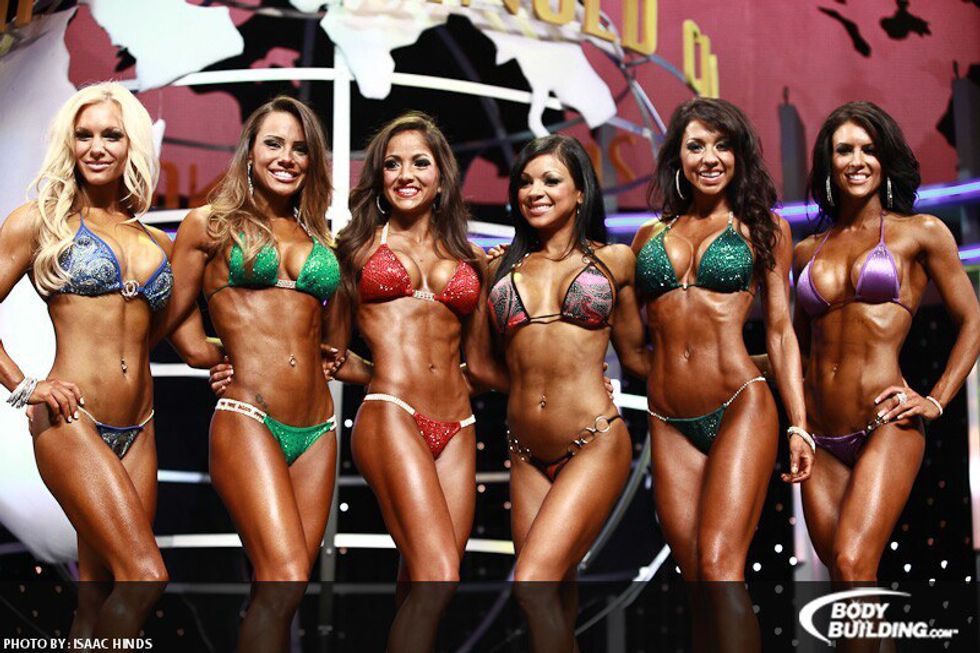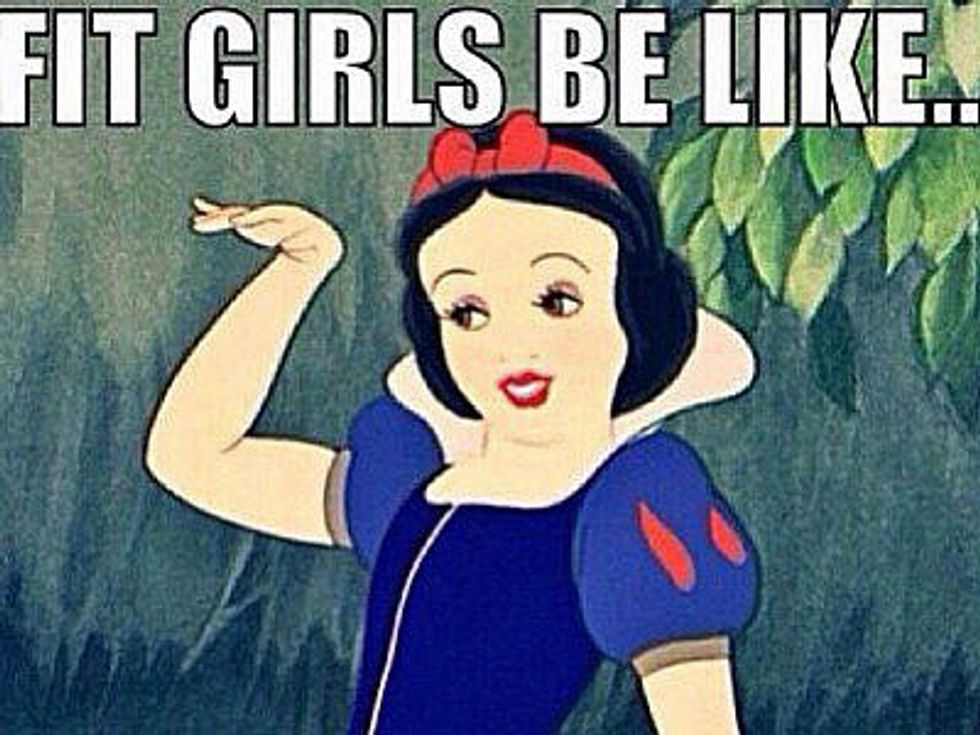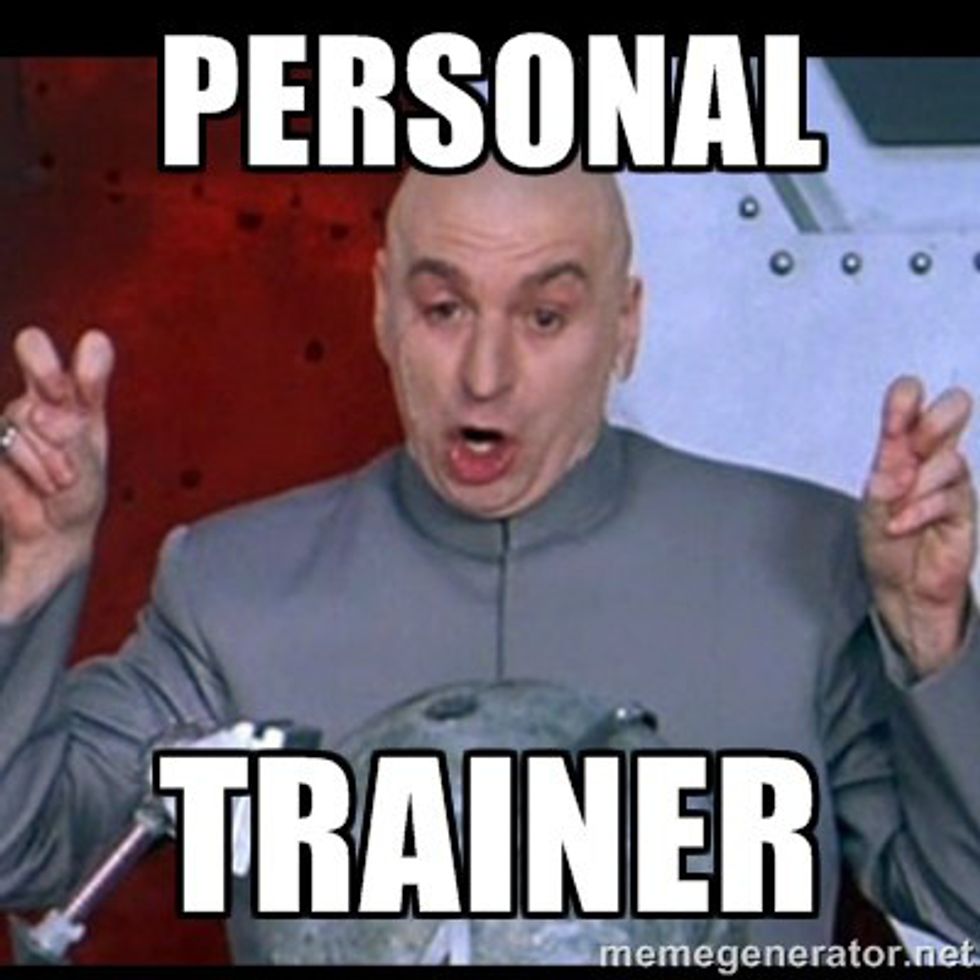If you are anything like me, your Instagram and Twitter feeds are loaded with fitness models, supplement companies, and healthy recipes. Every app you see has something relating to weight loss, workouts or diet plans, and every perfect selfie you see looks as though it could be on the cover of Sports Illustrated Body Edition. Alright, maybe I follow one too many fitness accounts, but nonetheless, it’s everywhere, and it’s always perfect. While these social media accounts inspire, motivate, and teach their followings to lead healthier lifestyles, this giving tree can grow some rotten branches.
Creating Unrealistic Standards
Everyone on social media has a washboard stomach and perfect hair. They don't sweat; they glisten. It’s hard to feel good about yourself and your progress when you’re staring at women with flawless proportions (often with help from Photoshop and implants). Many of these women, who flaunt their “healthy” physique, are not honest about the lives they actually lead; often these women are malnourished and over-trained, despite the big smile for the camera. When I looked closest to the “healthy” girls on social media, I had lost my period, suffered extreme depression, lived an isolated and restricted life, and dealt with bulimia, but people envied the sculpted cuts along my stomach, and the precise definition down my hamstrings. Former bikini competitor and current power lifter, “Megsquats” confesses in her YouTube video that her prep for her first and only bikini competition was “so, so horrible… I was hangry all of the time, I lost my period, I had no sex drive, and I started catching myself binging during my prep, and completely going crazy and not having control over what I was putting into my body. It really sucked...” There are a couple of YouTubers and Instagram influences, like “Megsquats,” who have converted to powerlifting after traumatic experiences with extreme dieting, who use their platform to speak about its ugly reality.
Encouraging Provocative Posts
I shouldn’t have to be concerned about opening Instagram and seeing a naked picture. Fitness influences often post extremely revealing posts with a caption like, “Had a great workout today,” or, “Got such a good glute pump,” when the post has nothing to do with fitness at all. When fitness models and athletes post provocative pictures, it gives the wrong message about health and wellness, especially to younger followers, or to people just beginning their fitness journeys. Fitness is not an R-rated lifestyle; it shouldn’t be advertised as one.
Charging for Motivation
While aesthetics is the goal of most fitness-based lifestyles, it is not a means by which to falsely advertise. Many fitness influences sell online programs and coaching by posting a picture of themselves with the caption, “sign up for my thirty day challenge,” or, “custom diet plans available now on my website,” as if the thirty-day challenge is what got their bodies where they are. While these workout guides and diet plans can be extremely useful and motivating tools, they are falsely advertised and the “coaches” are often under qualified.
Company Advertising
Most, if not all, of these Instagram celebrities have sponsorships from one or multiple companies, whether is be supplement, meal prep, or apparel companies. Because of their requirements to post for X brand X amount of times per week, these models often use their social media accounts as a platform on which to advertise for the company, whether or not they actually agree with/use the products.
Fitness is an individual journey. There is no one “right” way to diet or exercise because every person’s body is different and every person’s passions, struggles, and goals are different. Social media makes it easy to forget about the individual journey, and all too easy to compare it besides a photo-shopped picture. Social media gives these models/influences the power to create the perfect life, regardless if it’s true or posed, and use their bodies to promote exploitation, superficial satisfaction, and unrealistic standards of beauty, discipline, and lifestyle.
It's great that the expansion of social media has made fitness so widespread in todays world, but don't believe everything you see/read online. Filters hide a lot.















































